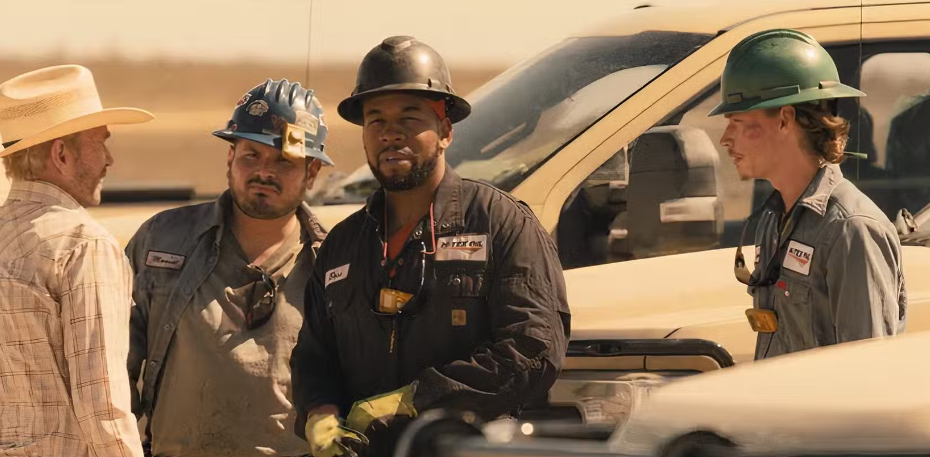
Oilfield Lingo: Behind the Language of the Patch
Share
Step onto an oil rig, and you’ll quickly realize that the oilfield runs on more than machines — it runs on its own language. From job titles to daily tasks, the vocabulary of the patch is as rugged and precise as the work itself. As depicted in Landman, understanding this lingo is essential to surviving — and thriving — in the oil industry.
Starting at the Bottom: Worms and Ginsels
New hires in the oil patch are called "worms." They’re the least experienced hands on the rig, often assigned the dirtiest and toughest jobs. As one oilfield veteran quipped:
“A worm doesn’t just learn the ropes — they get tangled in them.”
But even lower than a worm is the "ginsel" — essentially an unpaid intern in the oil world. A ginsel’s main job? Watch, learn, and try not to get in the way.
The Crew Ranks: Chainhands, Derrickhands, and Drill Bosses
Once you’ve proven your worth, you might move up to Chainhand, managing the powerful tongs that clamp and guide pipes into the well. It’s tough, back-breaking work.
Above them stands the Derrickhand, perched high on the derrick itself, guiding pipes into place. It’s not a job for the faint of heart — one misstep could mean a deadly fall.
Running the whole operation is the Driller, often called the “boss of the patch.” Drillers operate the heavy machinery, call the shots, and make sure the rig keeps producing.
High-Stakes Decisions: Killing the Well and Fracking
Sometimes, even the best efforts can’t keep a well producing. That’s when the dreaded term "killing the well" comes into play — shutting down production, either temporarily or permanently. It’s a costly move that can make or break an oil company’s fortunes.
Then there’s fracking, the controversial process that injects high-pressure fluids to force more oil or gas out of the ground. Critics worry about environmental risks, while industry leaders see it as a lifeline for extending the life of aging wells.
“You don’t frack because you want to. You frack because you have to.”
The Boom-Bust Cycle: Living in a Boomtown
The oil industry’s fortunes swing between booms and busts, creating entire boomtowns in remote regions. Towns like Midland and Odessa, Texas, thrive when the rigs are running, only to face hardship when the wells dry up.
“A boomtown’s glory is always on borrowed time.”
Life in the Patch: A Gritty, Dangerous Calling
Working the patch is not just a job; it’s a lifestyle defined by long hours, hard labor, and constant risk. Whether you’re a worm learning the ropes or a driller calling the shots, the stakes are sky-high — just like the towering derricks that dot the horizon.
As Landman vividly shows, every promotion, every job title, and every decision in the oilfield has a story — and a language — of its own.
